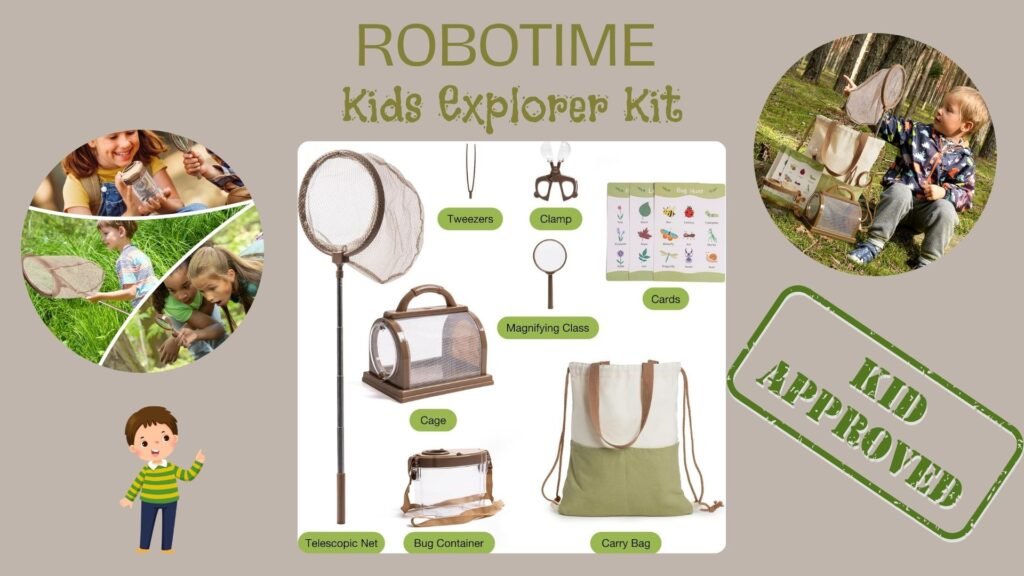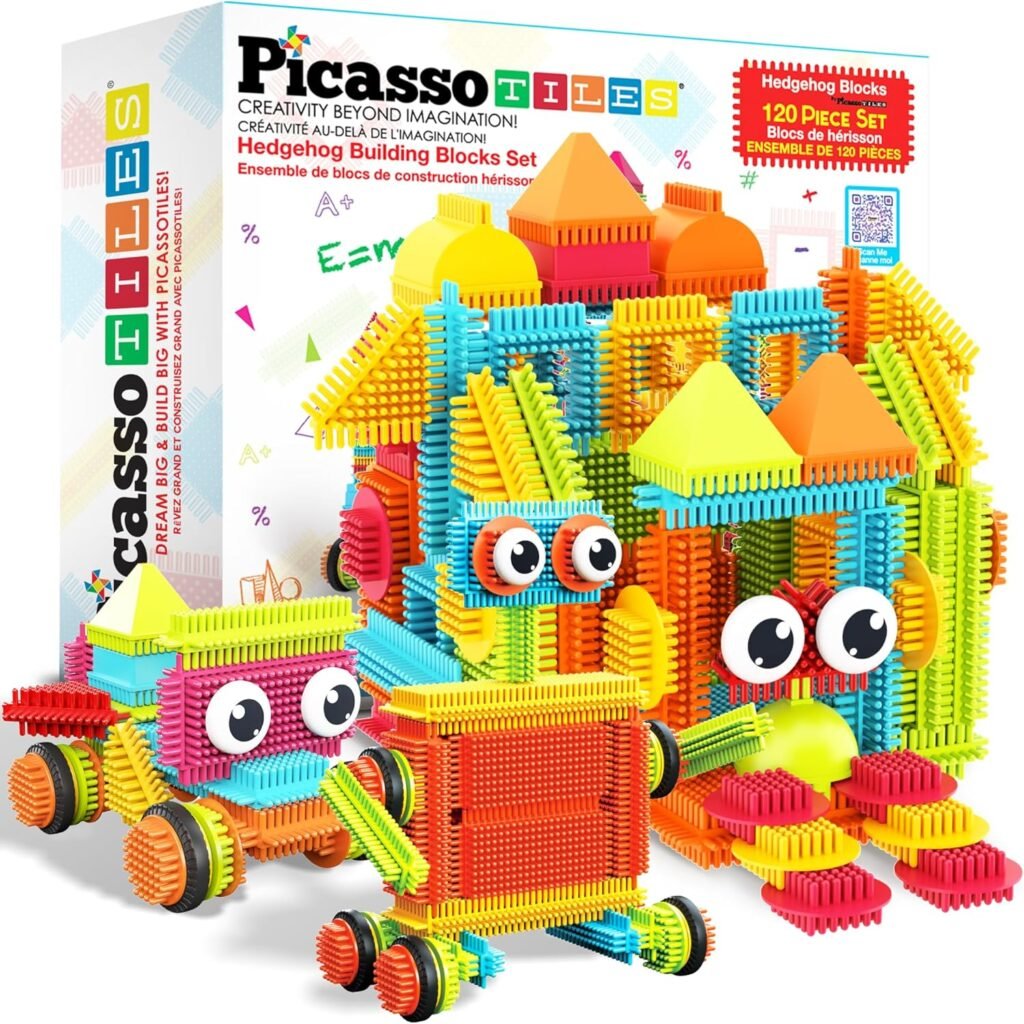Encouraging preschoolers to ask questions is essential for their growth and development. Questions help them explore the world around them and deepen their understanding. By fostering a questioning mindset, we can help children build critical thinking skills and lay a strong foundation for future learning. This article discusses the importance of encouraging questions, the benefits of questioning for preschoolers, and effective strategies for parents and educators.
Key Takeaways
- Fostering curiosity in preschoolers leads to better learning outcomes.
- Asking questions helps develop critical thinking and problem-solving skills.
- Creating a supportive environment encourages children to express their curiosity.
- Open-ended questions stimulate deeper conversations and understanding.
- Parents and educators play a vital role in nurturing a questioning culture.
The Importance of Encouraging Preschoolers to Ask Questions
Understanding Their Curiosity
Preschoolers are naturally curious, often asking hundreds of questions each day. This curiosity is essential for their development. When children ask questions, they are not just seeking answers; they are trying to understand the world around them. This process helps them make connections and learn about their environment.
Building a Foundation for Learning
Encouraging questions lays a strong foundation for future learning. When children feel comfortable asking questions, they are more likely to engage in discussions and explore new ideas. This engagement can lead to:
- Improved problem-solving skills
- Greater creativity
- Enhanced critical thinking abilities
Fostering Critical Thinking Skills
Asking questions helps preschoolers develop critical thinking skills. When they inquire about various topics, they learn to analyze information and think deeply. By nurturing this skill, we prepare them for more complex learning in the future.
Encouraging questions in preschoolers is not just about finding answers; it’s about fostering a mindset of inquiry that lasts a lifetime.
In summary, supporting preschoolers in their quest for knowledge is vital. It not only satisfies their curiosity but also equips them with essential skills for their educational journey.
Highlight: 6 kinds of open ended questions you should ask your …
How Questioning Benefits Preschoolers’ Development
Cognitive Growth and Brain Development
Encouraging preschoolers to ask questions plays a crucial role in their cognitive development. Questioning stimulates brain activity, leading to the formation of new neural connections. Research shows that children can ask around 40,000 questions between the ages of two and five, which is a sign of their growing curiosity and understanding of the world.
Social and Emotional Benefits
When preschoolers ask questions, they engage in social interactions that help them develop emotional intelligence. Here are some benefits:
- Improved communication skills
- Enhanced ability to express feelings
- Increased empathy towards others
Enhancing Language Skills
Asking questions is a powerful way for children to expand their vocabulary and language skills. When they inquire about something, they learn new words and concepts. This process can be summarized as follows:
- Exposure to new vocabulary
- Practice in forming sentences
- Understanding context and meaning
Encouraging questions not only helps children learn but also fosters a sense of wonder about the world around them.
In summary, promoting questioning in preschoolers is essential for their overall development. It enhances their cognitive abilities, supports social skills, and enriches their language learning. By nurturing their curiosity, we lay the groundwork for lifelong learning.
Strategies to Encourage More Questions from Preschoolers
Creating a Safe and Open Environment
To foster a culture of questioning, it’s essential to create a space where preschoolers feel safe to express their thoughts. Encouragement is key! Here are some ways to achieve this:
- Listen actively to their questions without interruption.
- Validate their curiosity by showing interest in their inquiries.
- Avoid negative reactions to their questions, even if they seem silly.
Using Open-Ended Questions
Instead of asking questions that can be answered with a simple “yes” or “no,” try using open-ended questions. These types of questions elicit fresh and sometimes even startling insights and ideas, opening minds and enabling teachers and students to build knowledge together. Here are some examples:
- What do you think happens when it rains?
- How do you feel about sharing your toys?
- Why do you think the sky is blue?
Modeling Curiosity and Inquiry
Children learn by observing adults. When you model curiosity, you inspire them to do the same. Here’s how:
- Ask questions about everyday things, showing your own curiosity.
- Share your thoughts and reasoning when you encounter something new.
- Encourage discussions about their interests and ideas.
By nurturing a questioning mindset, we help children develop critical thinking skills that will benefit them throughout their lives.
Overcoming Barriers to Questioning in Preschool
Addressing Fear of Wrong Answers
Many preschoolers hesitate to ask questions because they fear giving the wrong answer. Creating a supportive atmosphere where mistakes are seen as part of learning can help alleviate this fear. Here are some strategies:
- Encourage a culture of exploration.
- Praise effort, not just correct answers.
- Share your own mistakes to normalize them.
Creating Time for Questions
In busy preschool settings, questions can often be overlooked. To ensure that children have the opportunity to ask, consider these approaches:
- Set aside specific times for open discussions.
- Incorporate question time into daily routines.
- Use transitions between activities as moments for inquiry.
Encouraging Teachers to Foster Inquiry
Teachers play a crucial role in promoting a questioning culture. They can:
- Model curiosity by asking their own questions.
- Use open-ended questions to stimulate discussion.
- Create an environment where every question is valued.
By addressing these barriers, we can help preschoolers feel more comfortable and confident in their questioning, leading to a richer learning experience.
Highlight: Creating a supportive atmosphere is essential for encouraging questions.
The Role of Parents and Educators in Promoting Questions
Collaborative Efforts Between Home and School
Parents and educators must work together to create an environment that encourages questioning. When families engage in discussions about learning, children feel more comfortable asking questions. Here are some ways to foster this collaboration:
- Share insights about children’s interests and questions.
- Attend school events to understand the learning environment.
- Encourage children to ask questions at home and in school.
Providing Resources and Support
To promote questioning, both parents and educators should provide resources that stimulate curiosity. This can include:
- Books that encourage inquiry.
- Educational games that require problem-solving.
- Access to technology that allows exploration of topics of interest.
Celebrating and Valuing Questions
It’s essential to celebrate children’s questions. When kids see their inquiries valued, they are more likely to continue asking. Here are some strategies:
- Acknowledge every question, no matter how simple.
- Create a question board where children can post their inquiries.
- Share stories of famous inventors or scientists who asked questions that led to discoveries.
Encouraging a culture of questioning not only nurtures curiosity but also builds a strong foundation for lifelong learning.
In summary, the role of parents and educators is crucial in fostering an environment where questioning is welcomed and encouraged. By working together, they can help children develop a love for learning that lasts a lifetime.
Long-Term Benefits of a Question-Friendly Environment
Sustaining Curiosity Through School Years
Encouraging preschoolers to ask questions helps them maintain their curiosity as they grow. When children feel comfortable asking questions, they are more likely to continue this behavior in later grades. This ongoing curiosity can lead to a deeper understanding of subjects and a love for learning.
Preparing for Future Academic Success
A question-friendly environment lays the groundwork for academic achievement. Children who ask questions are often better at problem-solving and critical thinking. They learn to analyze situations and make informed decisions, which is crucial for success in school and beyond.
Developing Lifelong Learners
When children are encouraged to ask questions, they develop a habit of inquiry that lasts a lifetime. This habit not only helps them in school but also in their personal and professional lives. They become individuals who seek knowledge and understanding, making them adaptable in a rapidly changing world.
A question-friendly environment nurtures decision-making skills at a young age, teaching children to think critically by asking open-ended questions and weighing the pros and cons of their choices.
In summary, fostering a culture of questioning in preschool can lead to significant long-term benefits, including:
- Sustained curiosity throughout their education
- Enhanced problem-solving abilities
- A foundation for lifelong learning
Encouraging Curiosity in Preschoolers
In conclusion, nurturing a preschooler’s curiosity by encouraging them to ask questions is vital for their growth. Research shows that when children inquire, they are genuinely seeking to understand the world around them. This curiosity not only helps them learn but also keeps them engaged in their education. As they transition into structured environments like preschool, it’s crucial to support their questioning, as this can diminish over time. By fostering an atmosphere where questions are welcomed, we can help children develop critical thinking skills and a lifelong love of learning. So, let’s celebrate their questions and guide them on their journey of discovery!
Frequently Asked Questions
Why is it important for preschoolers to ask questions?
Encouraging preschoolers to ask questions helps them explore their world, understand concepts better, and develop critical thinking skills.
How do questions benefit a child’s development?
Questions promote cognitive growth, enhance language skills, and provide social and emotional benefits, allowing children to connect with others.
What can parents do to encourage questioning at home?
Parents can create a safe environment, ask open-ended questions, and show curiosity themselves to inspire their children to ask more questions.
Why do preschoolers stop asking questions as they grow older?
As children get older, they may feel less comfortable asking questions due to educational pressures and a focus on getting the right answers.
How can teachers support questioning in the classroom?
Teachers can encourage questioning by allowing time for inquiries, using engaging materials, and fostering an atmosphere where questions are valued.
What are some long-term benefits of fostering a questioning mindset?
A questioning mindset can lead to sustained curiosity, better academic performance, and the development of lifelong learners.


Ms. Kerri’s Corner provides a exciting virtual space for preschool learning. Through a variety of engaging activities, she exposes young minds to early math, literacy, science and social-emotional skills in a developmentally appropriate way. Centers for blocks, art, books and music allow children to explore hands-on learning at their own pace. Guided lessons subtly introduce number sense, letter sounds and narrative thinking. Careful observation gives insight into each child’s progress across domains. Viewers are also invited to participate, reinforcing that their ideas are valued. By making learning fun yet purposeful, Ms. Kerri lays the groundwork for future academic success while fostering creativity and imagination. Her program offers preschoolers valuable screen-based learning experiences.







